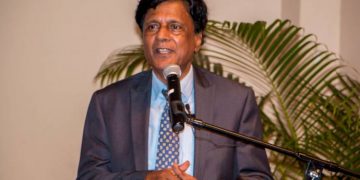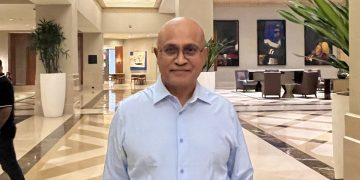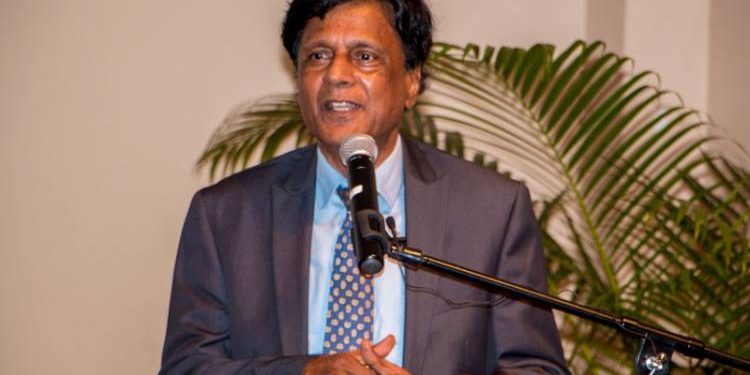In my estimation, the fallout from the elections – in which the PNC attempted to ham-handedly rig its way to remain in office – has left the country as divided as it ever was, since the 1960s. I have engaged in several virtual Zoom discussions that have sprouted in this age of COVID 19, where this view was hotly disputed. “It’s the politicians who are stirring up these divisions,” it was insisted, “and everything’s OK on the ground.” I am not convinced: politicians can, do, and will exploit divisions but cannot conjure them out of thin air. Those fault lines were there for a very long time and became salient when the question of “who will replace the white man” was asked, with the granting of universal franchise and of holding general elections in 1953.
Before then, the severely restricted franchise – circumscribed by income and literacy requirements – made elections to the Legislature into a genteel competition between the middle class. They were noticeably fractured along ethnic lines – including a dominant “coloured” segment that held itself apart from the African population. Showing they appreciated the cleavages in Guyana, Jagan and his colleagues in the PAC carefully crafted a multi-ethnic executive in preparation for the 1953 elections. Most fatefully, Ashton Chase stepped aside for the Guyana Scholar Forbes Burnham, who was returning as a lawyer from England, as the “African” representative. He had been recommended by the Communist Party of England.
After the split between Jagan and Burnham in 1955, Jagan matter-of-factly accepted that Burnham took most African Guyanese with him but elides the fact that it left him, an Indian Guyanese, as leader of the Indian rump. At the grassroots, it did not change the relations between the several ethnic groups but events were unfurled that would gradually change that. After Burnham’s loss in 1957, I remember comforting my best friend Roy Rawlins that “next time, ayuh guh win”. But we remained friends and went to see the Ghana Independence Celebrations in the African section (Cashbah) of our mixed village of Uitvlugt, near his home. We all ate, played, swam and “played ball” together in our unselfconscious “mixed group”.
The recent the passing of Dr Ralph Gomes reminded me of the pride we all felt for our fellow “Uitvlugt man” when he won a gold and bronze medal at the Central American and Caribbean Games of 1959 in Caracas and went on to represent Guyana at 1960 Summer Olympics in Rome. Ralph was to proceed on a scholarship to study in Puerto Rico and then on to the United States where he eventually joined the faculty of Howard University in 1971 and served with distinction for the next 49 years. He inspired us in the village to realise higher education was not out of our reach. But a lot of water flowed under the bridge by then and I witnessed the ethnic cleansing of the sections of our village of the “other”, after the strikes of 1963 (Public Service Union) and 1964 (sugar workers).
Neither my African Guyanese friends nor I ever recovered fully from the traumas of that period, even though we attempted to bridge the gaps (rather awkwardly) when we met afterward. And this is what I fear for this generation if they refuse to acknowledge and address why is it that elections act as magnets to pull us to opposite poles. This can only occur unless we have differences that cause us to move to those opposite poles.
Undoubtedly, there has developed a significant percentage of Guyanese who now form a “swing bloc”, which either the PNC or the PPP can attempt to attract to take them over 50% occurred in 2015 and 2020. But we still have a situation where the overwhelming bulk of each of the two major parties come from respectively the African and Indian Guyanese segments. With the strident campaign of the PNC and some of its partisans to emphasize the ethnic nature of inclusion and exclusion from Government, as the PPP begins its term of office, I fear that there may be a repetition of 1998 and its aftermath when the PNC similarly refused to accepted the elections results.
As we said earlier, politicians will always exploit ethnic sentiments – whether fear or joy – and the PPP government must address the fears of that majority of African Guyanese who voted for the PNC.




































































